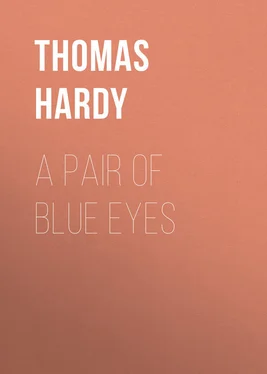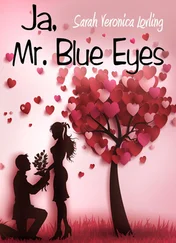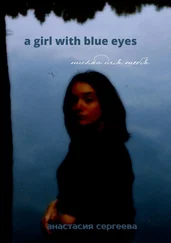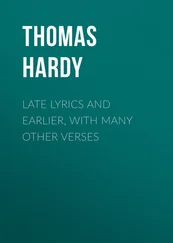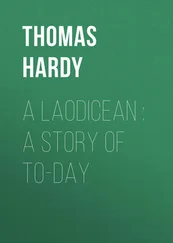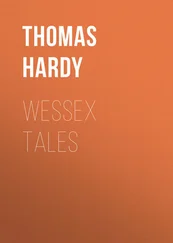Thomas Hardy - A Pair of Blue Eyes
Здесь есть возможность читать онлайн «Thomas Hardy - A Pair of Blue Eyes» — ознакомительный отрывок электронной книги совершенно бесплатно, а после прочтения отрывка купить полную версию. В некоторых случаях можно слушать аудио, скачать через торрент в формате fb2 и присутствует краткое содержание. Жанр: foreign_antique, foreign_prose, на английском языке. Описание произведения, (предисловие) а так же отзывы посетителей доступны на портале библиотеки ЛибКат.
- Название:A Pair of Blue Eyes
- Автор:
- Жанр:
- Год:неизвестен
- ISBN:нет данных
- Рейтинг книги:3 / 5. Голосов: 1
-
Избранное:Добавить в избранное
- Отзывы:
-
Ваша оценка:
- 60
- 1
- 2
- 3
- 4
- 5
A Pair of Blue Eyes: краткое содержание, описание и аннотация
Предлагаем к чтению аннотацию, описание, краткое содержание или предисловие (зависит от того, что написал сам автор книги «A Pair of Blue Eyes»). Если вы не нашли необходимую информацию о книге — напишите в комментариях, мы постараемся отыскать её.
A Pair of Blue Eyes — читать онлайн ознакомительный отрывок
Ниже представлен текст книги, разбитый по страницам. Система сохранения места последней прочитанной страницы, позволяет с удобством читать онлайн бесплатно книгу «A Pair of Blue Eyes», без необходимости каждый раз заново искать на чём Вы остановились. Поставьте закладку, и сможете в любой момент перейти на страницу, на которой закончили чтение.
Интервал:
Закладка:
‘Do you like that old thing, Mr. Smith?’ she said at the end.
‘Yes, I do much,’ said Stephen – words he would have uttered, and sincerely, to anything on earth, from glee to requiem, that she might have chosen.
‘You shall have a little one by De Leyre, that was given me by a young French lady who was staying at Endelstow House:
‘“Je l’ai plante, je l’ai vu naitre,
Ce beau rosier ou les oiseaux,” &c.;
and then I shall want to give you my own favourite for the very last, Shelley’s “When the lamp is shattered,” as set to music by my poor mother. I so much like singing to anybody who REALLY cares to hear me.’
Every woman who makes a permanent impression on a man is usually recalled to his mind’s eye as she appeared in one particular scene, which seems ordained to be her special form of manifestation throughout the pages of his memory. As the patron Saint has her attitude and accessories in mediaeval illumination, so the sweetheart may be said to have hers upon the table of her true Love’s fancy, without which she is rarely introduced there except by effort; and this though she may, on further acquaintance, have been observed in many other phases which one would imagine to be far more appropriate to love’s young dream.
Miss Elfride’s image chose the form in which she was beheld during these minutes of singing, for her permanent attitude of visitation to Stephen’s eyes during his sleeping and waking hours in after days. The profile is seen of a young woman in a pale gray silk dress with trimmings of swan’s-down, and opening up from a point in front, like a waistcoat without a shirt; the cool colour contrasting admirably with the warm bloom of her neck and face. The furthermost candle on the piano comes immediately in a line with her head, and half invisible itself, forms the accidentally frizzled hair into a nebulous haze of light, surrounding her crown like an aureola. Her hands are in their place on the keys, her lips parted, and trilling forth, in a tender diminuendo, the closing words of the sad apostrophe:
‘O Love, who bewailest
The frailty of all things here,
Why choose you the frailest
For your cradle, your home, and your bier!’
Her head is forward a little, and her eyes directed keenly upward to the top of the page of music confronting her. Then comes a rapid look into Stephen’s face, and a still more rapid look back again to her business, her face having dropped its sadness, and acquired a certain expression of mischievous archness the while; which lingered there for some time, but was never developed into a positive smile of flirtation.
Stephen suddenly shifted his position from her right hand to her left, where there was just room enough for a small ottoman to stand between the piano and the corner of the room. Into this nook he squeezed himself, and gazed wistfully up into Elfride’s face. So long and so earnestly gazed he, that her cheek deepened to a more and more crimson tint as each line was added to her song. Concluding, and pausing motionless after the last word for a minute or two, she ventured to look at him again. His features wore an expression of unutterable heaviness.
‘You don’t hear many songs, do you, Mr. Smith, to take so much notice of these of mine?’
‘Perhaps it was the means and vehicle of the song that I was noticing: I mean yourself,’ he answered gently.
‘Now, Mr. Smith!’
‘It is perfectly true; I don’t hear much singing. You mistake what I am, I fancy. Because I come as a stranger to a secluded spot, you think I must needs come from a life of bustle, and know the latest movements of the day. But I don’t. My life is as quiet as yours, and more solitary; solitary as death.’
‘The death which comes from a plethora of life? But seriously, I can quite see that you are not the least what I thought you would be before I saw you. You are not critical, or experienced, or – much to mind. That’s why I don’t mind singing airs to you that I only half know.’ Finding that by this confession she had vexed him in a way she did not intend, she added naively, ‘I mean, Mr. Smith, that you are better, not worse, for being only young and not very experienced. You don’t think my life here so very tame and dull, I know.’
‘I do not, indeed,’ he said with fervour. ‘It must be delightfully poetical, and sparkling, and fresh, and – ’
‘There you go, Mr. Smith! Well, men of another kind, when I get them to be honest enough to own the truth, think just the reverse: that my life must be a dreadful bore in its normal state, though pleasant for the exceptional few days they pass here.’
‘I could live here always!’ he said, and with such a tone and look of unconscious revelation that Elfride was startled to find that her harmonies had fired a small Troy, in the shape of Stephen’s heart. She said quickly:
‘But you can’t live here always.’
‘Oh no.’ And he drew himself in with the sensitiveness of a snail.
Elfride’s emotions were sudden as his in kindling, but the least of woman’s lesser infirmities – love of admiration – caused an inflammable disposition on his part, so exactly similar to her own, to appear as meritorious in him as modesty made her own seem culpable in her.
Chapter IV
‘Where heaves the turf in many a mould’ring heap.’
For reasons of his own, Stephen Smith was stirring a short time after dawn the next morning. From the window of his room he could see, first, two bold escarpments sloping down together like the letter V. Towards the bottom, like liquid in a funnel, appeared the sea, gray and small. On the brow of one hill, of rather greater altitude than its neighbour, stood the church which was to be the scene of his operations. The lonely edifice was black and bare, cutting up into the sky from the very tip of the hill. It had a square mouldering tower, owning neither battlement nor pinnacle, and seemed a monolithic termination, of one substance with the ridge, rather than a structure raised thereon. Round the church ran a low wall; over-topping the wall in general level was the graveyard; not as a graveyard usually is, a fragment of landscape with its due variety of chiaro-oscuro, but a mere profile against the sky, serrated with the outlines of graves and a very few memorial stones. Not a tree could exist up there: nothing but the monotonous gray-green grass.
Five minutes after this casual survey was made his bedroom was empty, and its occupant had vanished quietly from the house.
At the end of two hours he was again in the room, looking warm and glowing. He now pursued the artistic details of dressing, which on his first rising had been entirely omitted. And a very blooming boy he looked, after that mysterious morning scamper. His mouth was a triumph of its class. It was the cleanly-cut, piquantly pursed-up mouth of William Pitt, as represented in the well or little known bust by Nollekens – a mouth which is in itself a young man’s fortune, if properly exercised. His round chin, where its upper part turned inward, still continued its perfect and full curve, seeming to press in to a point the bottom of his nether lip at their place of junction.
Once he murmured the name of Elfride. Ah, there she was! On the lawn in a plain dress, without hat or bonnet, running with a boy’s velocity, superadded to a girl’s lightness, after a tame rabbit she was endeavouring to capture, her strategic intonations of coaxing words alternating with desperate rushes so much out of keeping with them, that the hollowness of such expressions was but too evident to her pet, who darted and dodged in carefully timed counterpart.
The scene down there was altogether different from that of the hills. A thicket of shrubs and trees enclosed the favoured spot from the wilderness without; even at this time of the year the grass was luxuriant there. No wind blew inside the protecting belt of evergreens, wasting its force upon the higher and stronger trees forming the outer margin of the grove.
Читать дальшеИнтервал:
Закладка:
Похожие книги на «A Pair of Blue Eyes»
Представляем Вашему вниманию похожие книги на «A Pair of Blue Eyes» списком для выбора. Мы отобрали схожую по названию и смыслу литературу в надежде предоставить читателям больше вариантов отыскать новые, интересные, ещё непрочитанные произведения.
Обсуждение, отзывы о книге «A Pair of Blue Eyes» и просто собственные мнения читателей. Оставьте ваши комментарии, напишите, что Вы думаете о произведении, его смысле или главных героях. Укажите что конкретно понравилось, а что нет, и почему Вы так считаете.
